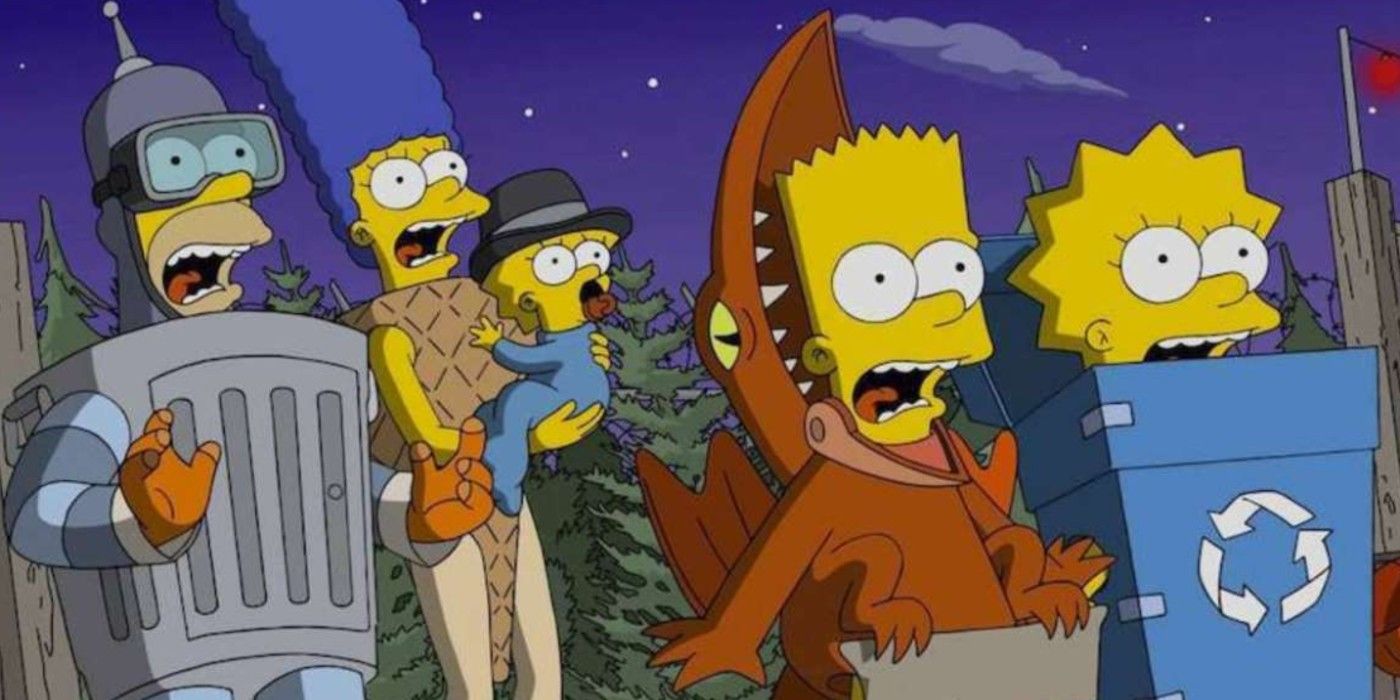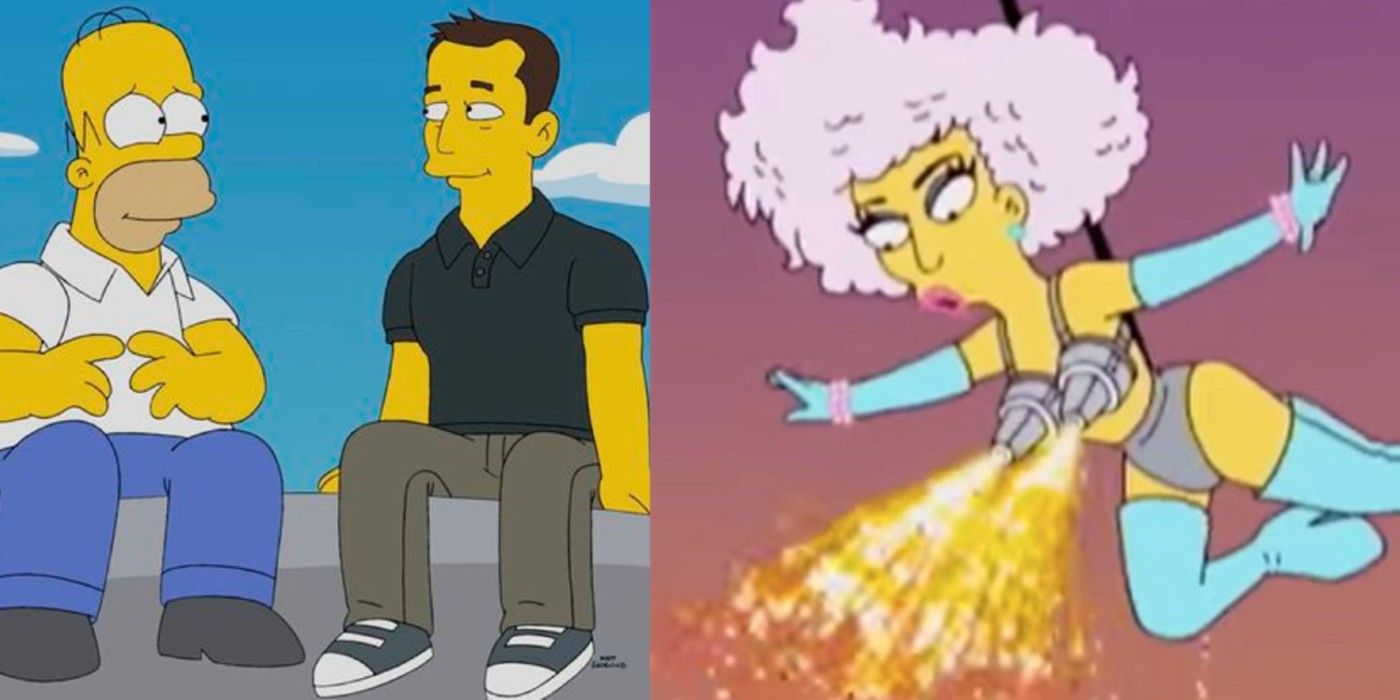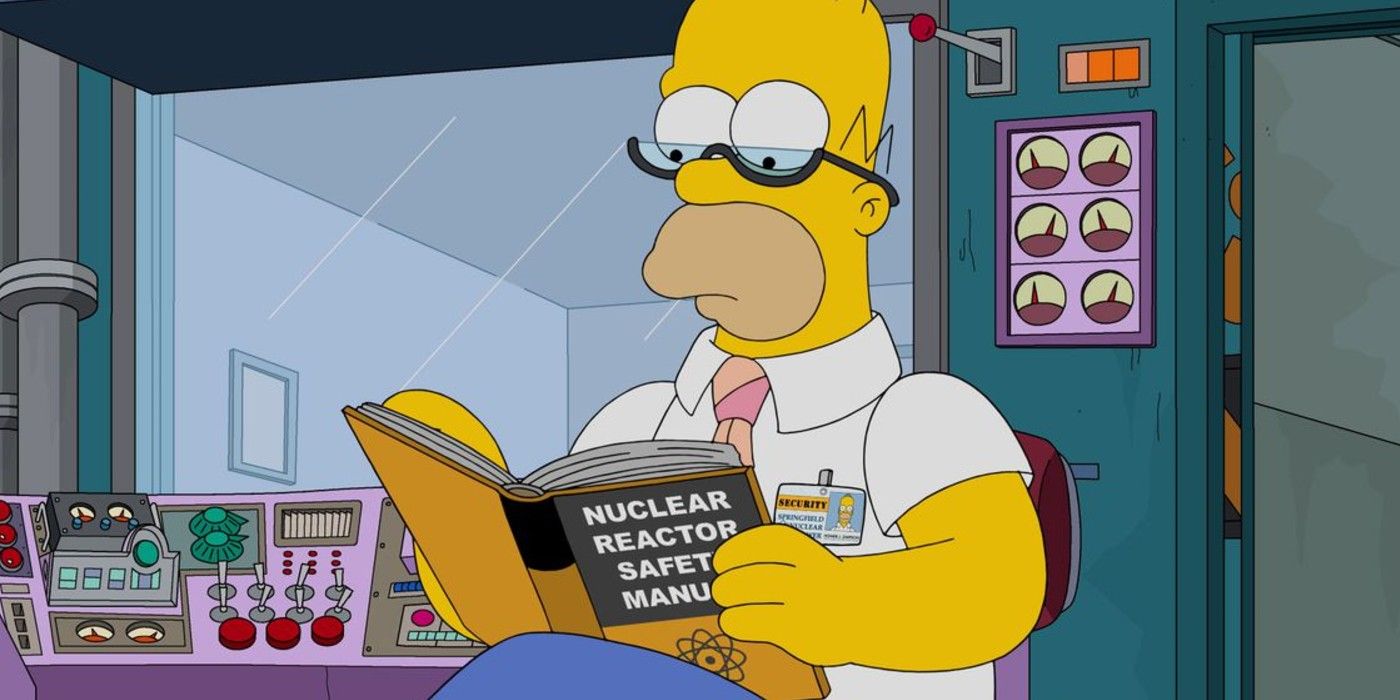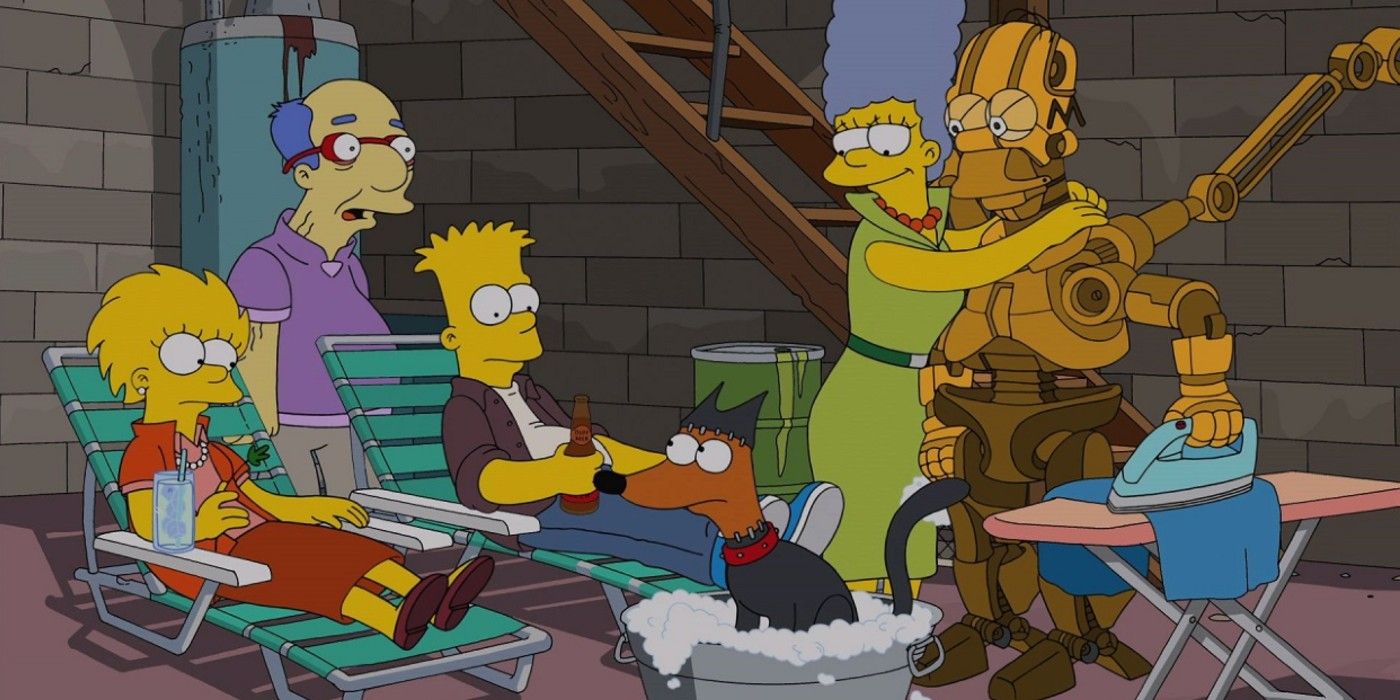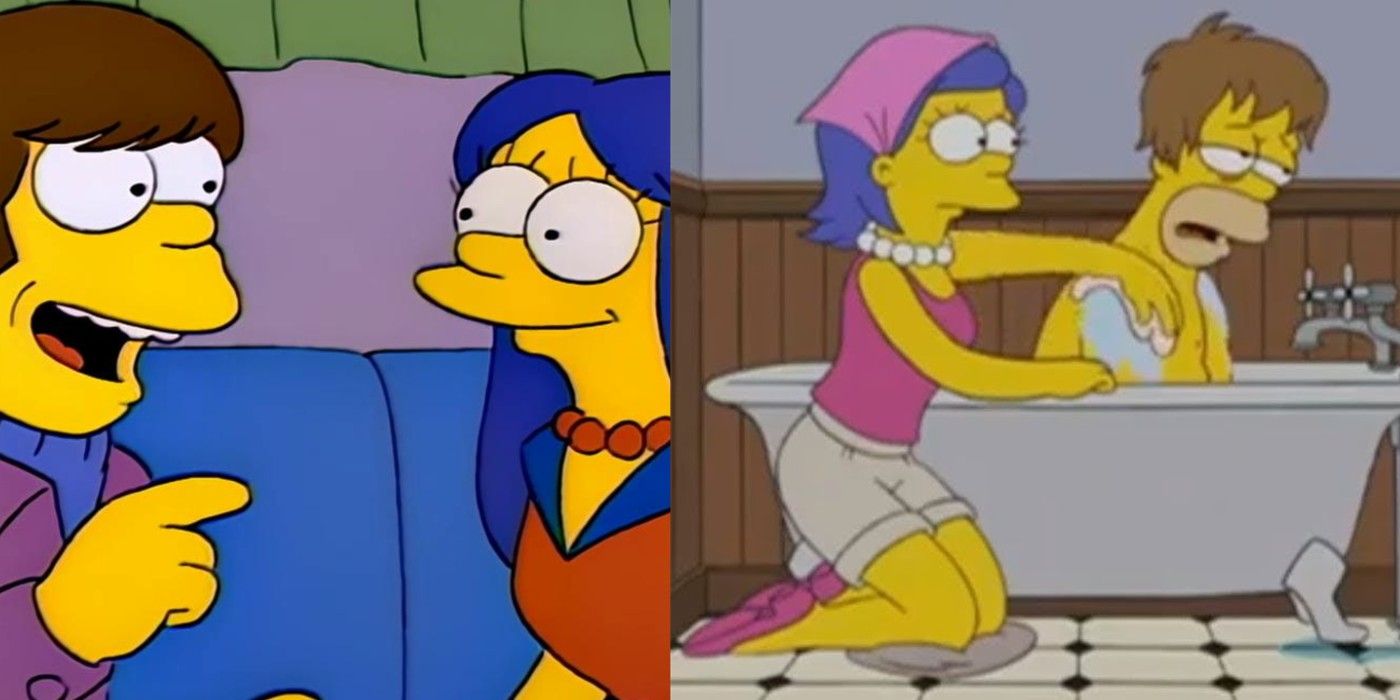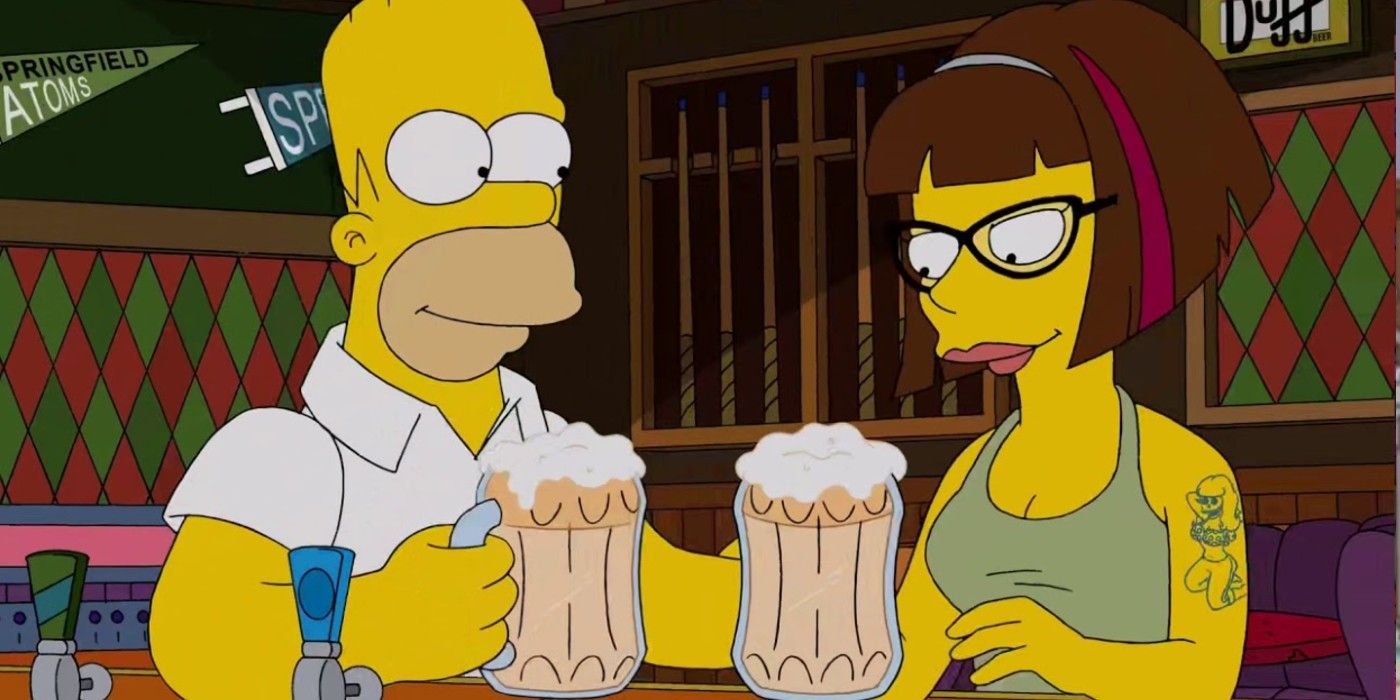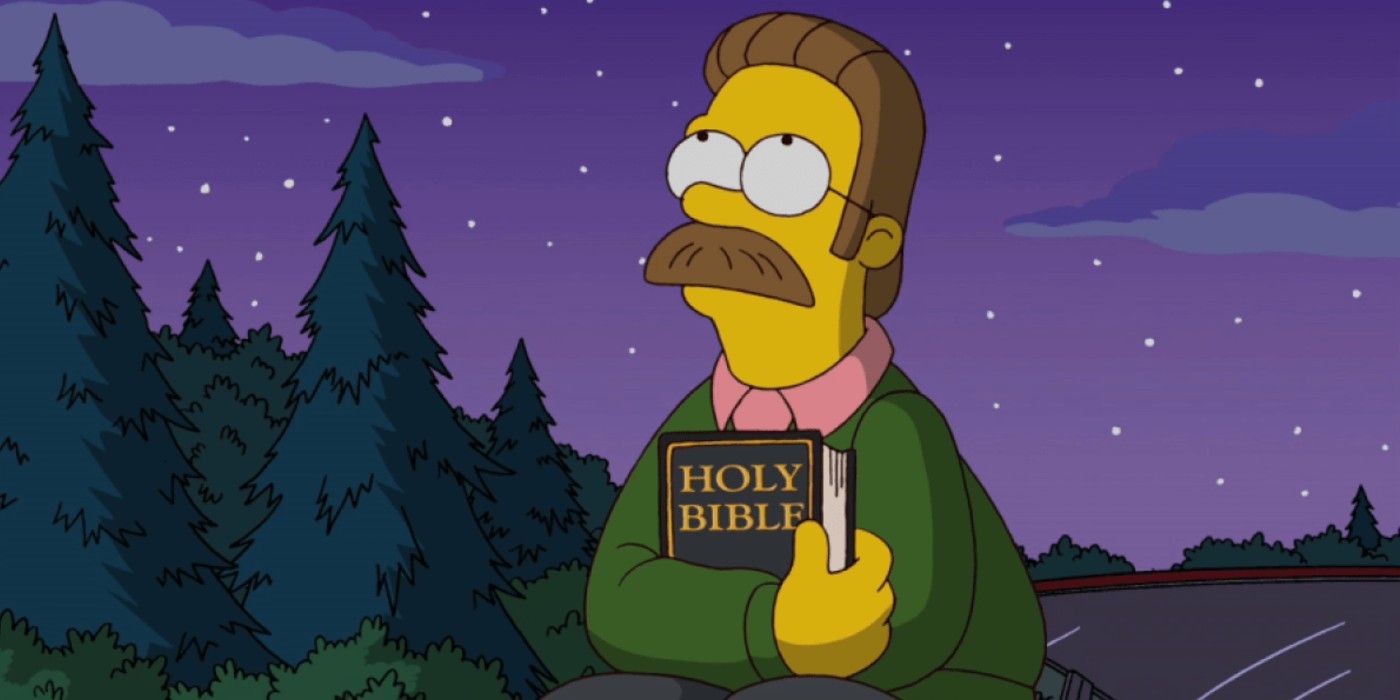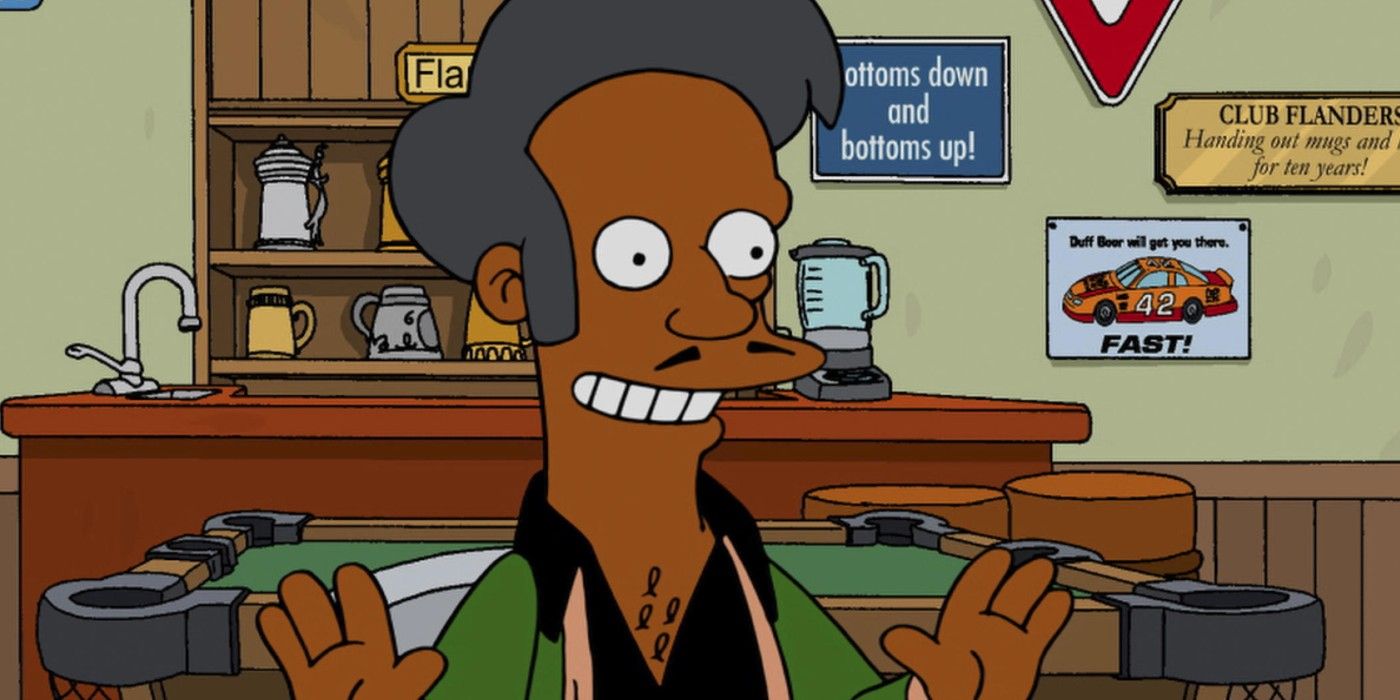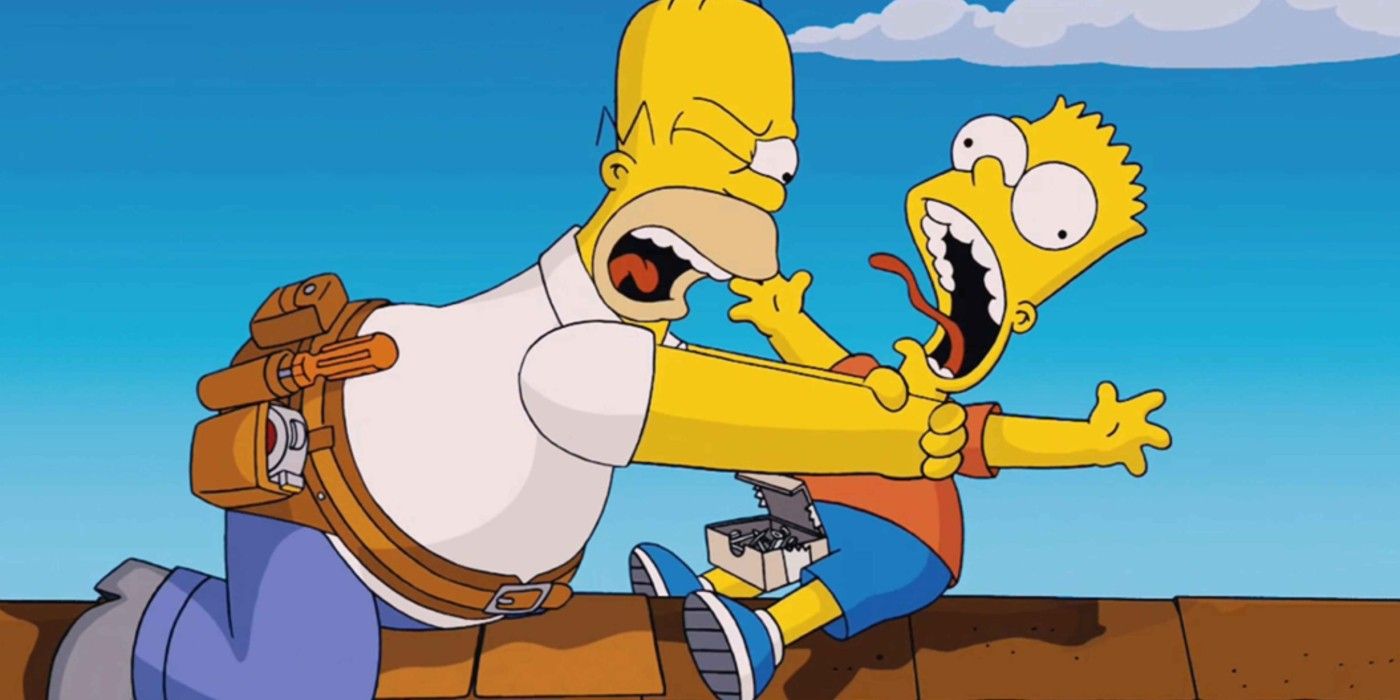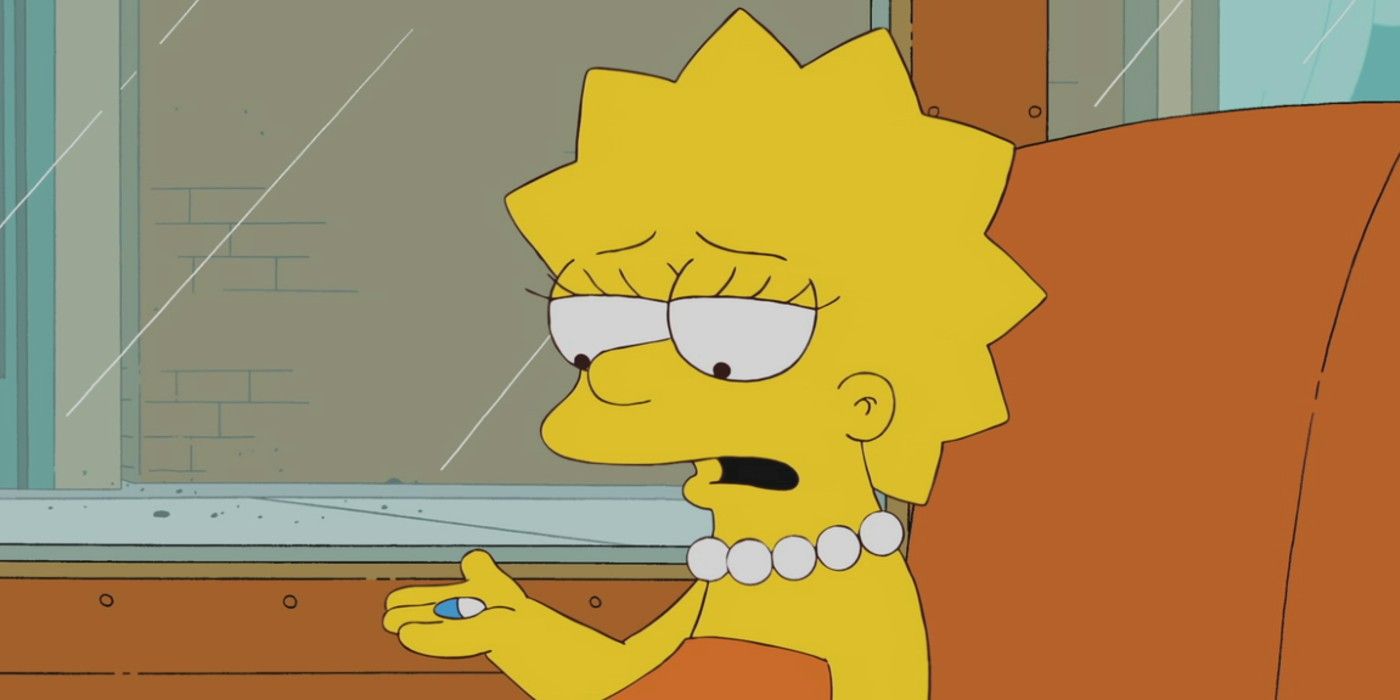No other animated sitcom can beat The Simpsons. Now with more than 600 episodes and 30 seasons (plus 2 more that were just ordered by Fox) to its name, the fun and sometimes touching escapades of the dysfunctional Simpsons family is more than just a pop culture mainstay. So with its ongoing longevity in mind, it shouldn’t be too surprising to find out that some of the show’s storylines didn’t age well.
None of these make the show unwatchable today, but they do show how far The Simpsons has come from its meager beginnings in 1989. With each old problematic storyline, a new one emerged and audiences get to see the show address these in real time. Here are 10 storylines from The Simpsons that didn’t age well.
The Treehouse of Horror Anthology
The Simpsons loves to riff on pop culture, with one of its most celebrated roasts being the Treehouse of Horror episodes. As the title implies, these episodes are jabs aimed explicitly at horror trends and some contemporary issues.
But like any joke comedy that relies on references, The Treehouse of Horror didn’t age well. This doesn’t mean the episodes are bad, but some of the older shout-outs will fly over newcomers’ heads. With some exceptions, this dated anthology is better viewed as a fun time capsule to occasionally revisit rather than classic must-see episodes.
The Celebrity and Crossover Episodes
There’s a section of The Simpsons fanbase that bemoans the newer seasons, demanding that the show return to its roots. Their case is made strong by newer episodes like Lisa Goes Gaga and The Simpsons Guy, which feature Lady Gaga and the cast of Family Guy respectively
The Simpsons may not be a stranger to celebrity cameos but recent celebrity-centric episodes and crossover adventures feel more like advertisements and puff pieces for big-named stars and other shows. Elon Musk’s episode aged the worst, with his almost messianic depiction clashing with his actual arrogant public persona.
Nuclear Power As A Punchline
As powerful as it is, nuclear power didn't really have the best image in popular culture thanks to real life fears and incidents. The Simpsons didn't help matters, as Homer’s buffoonery and Mr. Burns' pettily evil brand of management gave the energy source a negative image.
Obviously this was a joke, but the accidental damage caused gave the real nuclear industry a headache. The showrunners even got a tour of a power plant, but the public’s image of a nuclear energy plant as an unsafe toxic environment run by idiots persisted, sullying its reputation for a while.
The Holidays of Future Passed Timeline
For all the flak that modern Simpsons gets, the holiday episode of the 23rd season proved to be one of the show’s greatest. Set 30 years later, Holidays of Future Passed shows what life is like for the Simpsons in what was supposed to be a series finale.
The critically acclaimed episode wrapped things up in a touching way, so of course the showrunners revisited the timeline in Days of Future Future. As a result, the original episode’s emotional impact was nullified since Homer could beat death via cloning and the future was basically Futurama starring Bart.
Homer and Marge’s Hook Up
The episode The Way We Was shows how Homer and Marge got together in a lovingly and appropriately humorous way. According to this episode, the two fell in love during the ‘70s but then this is changed to the ‘90s in That ‘90s Show.
This confusing creative decision wasn’t even properly justified and is instead used to throw cheap shots at ‘90s trends, specifically the rise of grunge music. Following mass criticism, The Simpsons returned to its original timeline and effectively erased an episode that even a Weird Al Yankovic cameo couldn’t save.
Homer and Marge’s Divorce
The controversial Every Man’s Dream is rightfully deemed as one of the worst Simpsons episodes because of how bad its writing is. Not only does it destroy the show’s beloved fundamental relationship (i.e. Homer and Marge), but it does so for a dumb punchline.
There was a lot of media coverage for the supposedly momentous split, only for the divorce and the events that led to it being a dream within a dream within a dream within a tattoo of someone on HBO’s Girls. To say that the episode is insulting is an understatement.
Ned Flanders’ Fundamentalism
Originally, Ned Flanders – a devout Christian and family man whose life just seemed too perfect for Homer – was just Homer’s comically virtuous foil. But as seasons progressed, Ned devolved from a Mr. Rogers-like figure into a self-righteous religious bigot.
This wasn’t accidental, as the writers addressed contemporary religious controversies and their own gripes with conservatism by taking it out on Ned. In fact, Ned’s drastic degradation inspired the term “Flanderization” on TV Tropes. Recent episodes rectified this, toning down the spite he embodied with corrections seen in The Simpsons Movie where Bart views Ned as a father figure.
Anything To Do With Apu
While he may be an irreplaceable resident in Springfield, Apu Nahaspeemapetilon was and still is a character born out of a racial stereotype. Credit should be given to The Simpsons writers for fleshing him out over the years, but the fact remains that Apu’s mere existence was a lightning rod for controversy.
The backlash hit a crescendo with the documentary The Problem with Apu, where comedian Hari Kondabolu called out the showrunners for perpetuating demeaning stereotypes of those with Indian and South Asian descent. In response, Apu was removed from the show, much to Matt Groening’s annoyance.
Homer the Sitcom Dad
He may not be the first, but Homer Simpson is the definitive sitcom dad that other cartoons and series look to for inspiration. But as seen in many modern sitcoms that still play by the old rules, the stereotypical sitcom dad didn’t age well – especially not Homer.
When he’s not an incompetent idiot who lucks his way into getting what he wants, Homer can be a mean-spirited bully who lashes out on his kids. This has been somewhat addressed as of late, with Homer being more self-aware and sensitive but his old ways spring up every now and then.
Lisa’s Mistreatment
Ever since The Simpsons began, Lisa – a young intellectual – was shown as the only person in Springfield’s generally mediocre populace who could amount to something. And yet, the show goes through great lengths to punish her for her intelligence.
More often than not, Lisa is shown as an annoying know-it-all who everyone just begrudgingly tolerates. The argument could be made that Lisa is the writers’ avatar and they embody their struggles in hers. And yet, her episodic arcs almost always end with her submitting to the status quo and settling instead of finding something better.


